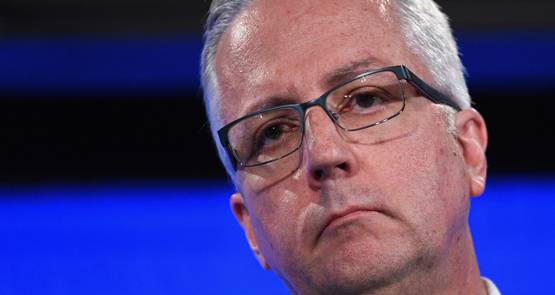
An attempt to garner big savings from the costs of transmitting ABC and SBS television and radio services has ended with the incumbent, Broadcast Australia, securing long-term contracts to broadcast both organisations’ services for decades to come.
National broadcaster digital television and digital and analog radio services were finally put to tender in June after a period of delay that puzzled observers and potential rival bidder TX Australia, which is jointly owned by the commercial metropolitan television networks. TX Australia is the only potential competitor to Broadcast Australia, given it operates the transmission services for the commercial television broadcasters in capital cities. As communications minister, Malcolm Turnbull secured approval for the broadcasters to retain savings from any new contract with a transmission provider, while slashing hundreds of millions of dollars from the ABC budget over forward estimates.
Although no contract has been announced, Crikey understands that the ABC and SBS have come to terms with the incumbent, and outgoing ABC managing director Mark Scott, speaking at the National Press Club, yesterday confirmed that a deal had been done. Crikey understands that the contract length is 20 years, the longest contract BA has had since the original National Transmission Agency was sold by the Howard government.
The length of the contract raises interesting questions about Scott’s suggestion that ABC and SBS be merged into a single television multiplex that would carry the primary ABC and SBS channels. Channels like ABC2 and SBS2 would be merged and others distributed online rather than via terrestrial broadcasting — or squeezed onto existing spectrum via emerging compression technologies. If the plan is adopted, that would halve the national broadcasters’ terrestrial transmission and distribution costs — and halve BA’s revenue.
Yesterday Scott said the contract contained provisions for changes in services, meaning the broadcasters would, ostensibly, not face break fees for discontinuing major revenue streams as they shifted to a smaller suite of services.
But a key problem for the Scott proposal is that, in the absence of compression technologies that could enable all existing ABC and SBS services, with one or two mergers, to continue to be broadcast terrestrially, regional viewers without access to high-speed broadband would face a loss of services. Given perennial complaints about the lack of regional media services from the Nationals, that’s unlikely to be a popular outcome in Canberra. But not anywhere near as unpopular as the merger will be with Broadcast Australia, which has creamed hundreds of millions from taxpayers for two decades and hopes to do it for two decades more.








” regional viewers without access to high-speed broadband would face a loss of services”
Is it worth pointing out that outer suburbs of major cities also have areas without broadband suitable for streaming.
Honestly Bernard, you should read Andrew Bolt’s little bit of rationale in the Hun. The whole thing is a left wing plot, etc.
It’s at least one step in the correct direction, Bernard, if that happens and reduces some of the wasteful misuse of taxpayer moneys, isn’t it.
Keto Vodda, in case you’re unfamiliar with the RELEVANT differences between uploading and downloading data, check and you’ll find that for the overwhelming majority of internet users speed of uploading is irrelevant. It matters merely for users such as businesses which need to be able to upload LARGE quantities of data. Ask Bernard and he’ll be able to confirm this.
Venise Alstergren, I’ve never questioned your sincerity, but why don’t you tackle issues such as basic language and logic before attempting to undertake the demanding task of analysing what others have said?
A good saving of some millions would be to cease paying mudorc to be broadcast on Foxtel – see Crikey passim.
VA – I cannot imagine anything that Blot dislikes not being damned as a left wing plot – he (pretends to) “think” climate change is communist subversion of poor vulnerable billionaires.
Like his cryogenic candidate boss.
When poor souls who can’t transcribe simple names such as Murdoch correctly begin making assertions about even mildly complex issues we need look no further for an example of hubris run wild, do we.
They really should stay away from demanding topics such as Climate Change including what their intellectual superiors such as Andrew Bolt really think, and take up pastimes no more difficult than say basket weaving.